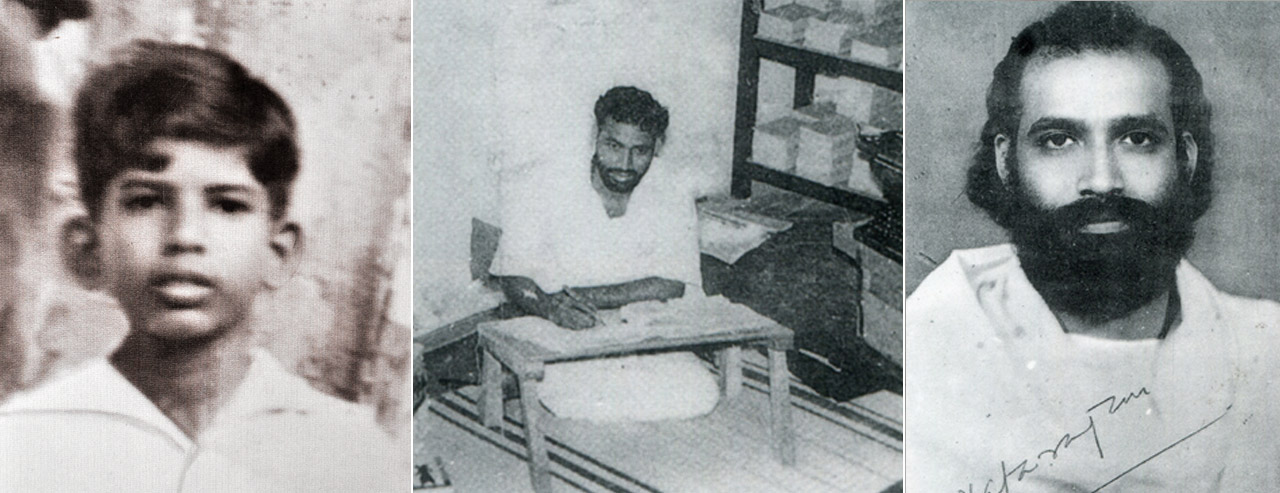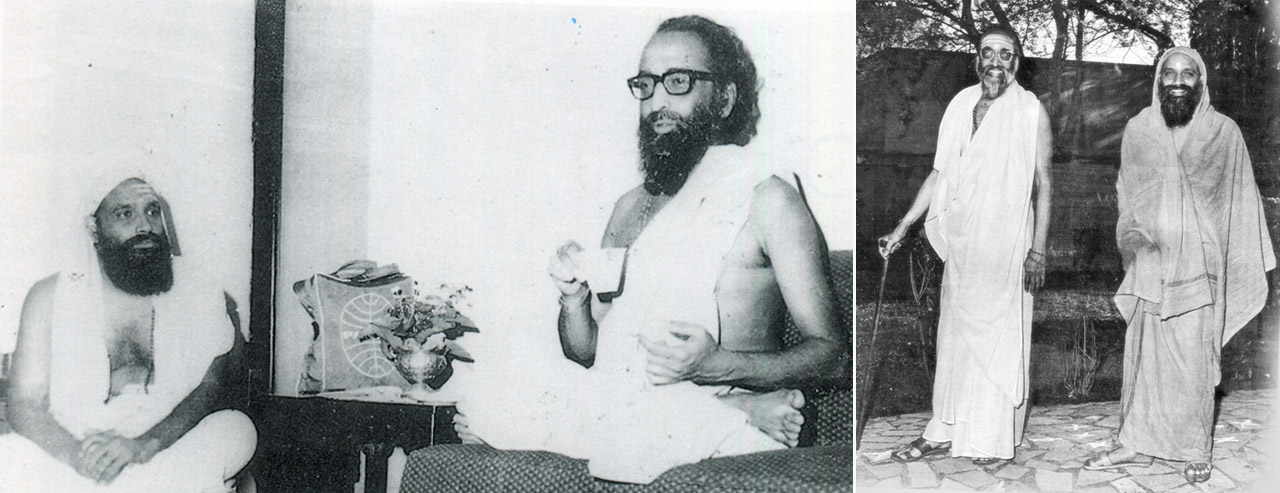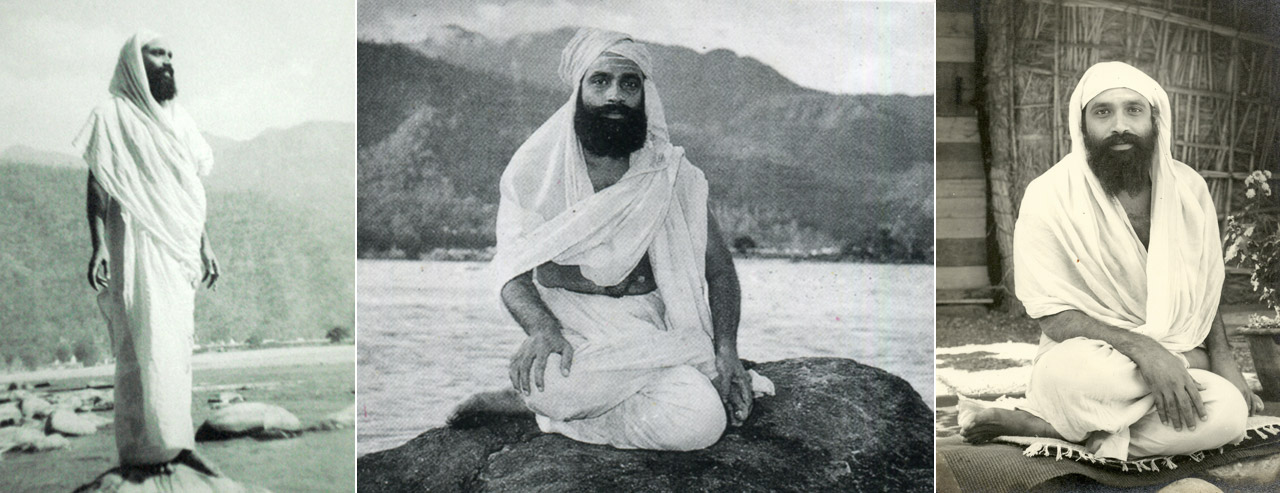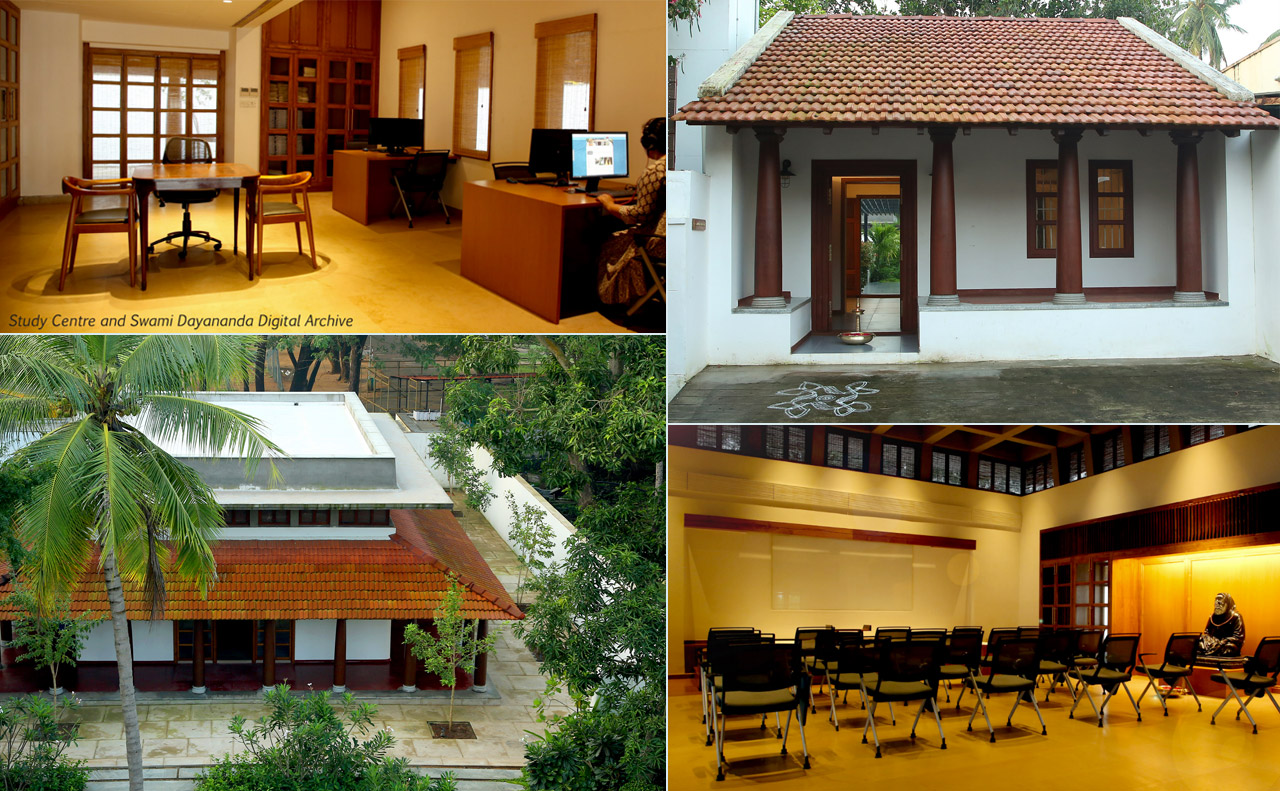-
 ARSHA VIDYA RESEARCH & PUBL. TRUST
ARSHA VIDYA RESEARCH & PUBL. TRUST
The Arsha Vidya Research and Publication Trust (AVR & PT) transcribes, edits, collates and publishes Swami Dayananda Saraswati’s teachings, lectures and writings with the sole objective of spreading the vision of our traditional spiritual texts and scriptures through systematic expansion of quality print and publishing media at affordable prices. Pujya Swamiji used to personally edit many of the books published by AVR&PT to ensure that the vision of Vedanta was communicated with clarity. Further, Pujya Swamiji has approved that AVR&PT shall be the single-source centre for editing and publishing his teachings. To date, AVR&PT has published more than 60 book titles under various series such as Public Talks, Essays, Moments with Oneself, Bhagavad Gita, Brahmasutra, Meditation, Exploring Vedanta, Sanskrit texts (Translated), Prakarana, Stotra and Upanishad series, with more in the offing. The Trust also houses over 5,700 hours of master transcripts of Pujya Swamiji’s teachings. AVR&PT Chennai offers books, audios, videos and e-books on the following platforms:
1) Books and pen drives containing recordings of Pujya Swamiji’s talks can be bought online through www.avrpt.com or at Spirit of the Earth (No. 4, Desika Road, Mylapore, Chennai)
2) AVR&PT’s app, ‘Teachings of Swami Dayananda’, is available for free download from Google Play Store and iTunes App Store. In addition to providing access to a selection of free e-books, audio & video, you can purchase and download more media content through the app.
3) E-books are also available for AMAZON Kindle apps and reader devices. Further, you can order paperback versions of Pujya Swamiji's books through print-on-demand facility provided by Amazon.
More information about Arsha Vidya Research and Publication Trust can be found at www.avrpt.com
-
 ALL INDIA MOVEMENT FOR SEVA
ALL INDIA MOVEMENT FOR SEVA
In addition to teaching, Swami Dayananda has initiated and supported various philanthropic efforts.
The All India Movement for Seva (AIM for Seva) is a pan-Indian, non-profit registered charitable trust, founded by Pujya Swami Dayananda Saraswati in 2000 as an initiative of the Hindu Dharma Acharya Sabha, an apex body of Hindu religious heads of the various sampradayas which itself was convened by Swami Dayananda's coordinating efforts. Pujya Swamiji understood that the challenges of accessibility and affordability were limiting children in rural India from going to school – which he uncovered during a conversation with a tribal woman.
Thus, AIM for Seva’s journey began with the goal of enabling children from impoverished rural and tribal areas to have the same advantages as children of means and, therefore, every opportunity to develop their full potential – and of the nation. The first Chatralayam (free student hostel) was set up in 2001. Today, AIM for Seva is spread across 16 states with 136 projects that include Chatralayams, schools, a college, vocational training centres, residential facility for differently abled adults, healthcare facilities, community development initiatives and sustainable living projects.
AIM for SEVA Global Presence
Aim for Seva USA – www.aimforsevausa.org
Aim for Seva Canada – www.aimforseva.ca
-
 SW DAYANANDA EDUCATIONAL TRUST
SW DAYANANDA EDUCATIONAL TRUST
Swami Dayananda Educational Trust (SDET) founded by Swami Dayananda Saraswati in 2003, is based in Manjakkudi in Tiruvarur District, Tamil Nadu. Nestled amidst lush paddy fields, Manjakkudi (also the birth place of Swami Dayananda Saraswati) is an integrated community development project. The continuous efforts of Swami Dayananda Educational Trust has transformed this silent village into a vibrant centre of learning, nourishing young minds to explore, experiment and expand their horizon.
For more information about Swami Dayananda Educational Trust please visit www.sdet.in
-
 INTER-RELIGIOUS DIALOGUE
INTER-RELIGIOUS DIALOGUE
Swami Dayananda has promoted several inter-religious dialogues. He has participated in Hindu-Jewish conferences facilitated by the World Council of Religious Leaders under that organizations “Religion One on One” initiative. He has also participated in two Hindu-Buddhist summits. The first one organized by the Global Peace Initiative of Women, was held in Phnom Penh, Cambodia in 2009 and the second one was organized in Colombo, Sri Lanka in 2010.
-
 PRESERVING CULTURES & RELIGIONS
PRESERVING CULTURES & RELIGIONS
Swami Dayananda has promoted the preservation of ancient cultures and religious and spiritual practices of India that have survived several millennia, yet struggle in modern times due to lack of support. He has started several Veda Pathashalas (Centers of learning of Vedas) for the preservation of Vedas and Agamas to prevent their rapid extinction due to a lack of infrastructure for learning.
Swami Dayananda also founded the Dharma Rakshana Samiti, a body to protect the Vedic heritage, to preserve the native spiritual culture of India inherited from the rishis and to raise the awareness among Hindus of their Vedic heritage.
Swami Dayananda had appointed 35 oduvars in ancient Siva temples and paid them monthly allowance to sing the Panniru Tirumurai, songs explaining Saiva Siddhanta philosophy.
Swami Dayananda was instrumental in building five chariots for Sri Mahalingaswamy Temple at Tiruvidaimarudur near Kumbakonam in 2010.
Sri DayanandaSaraswati brought various monks and matathipatis across India under one umbrella called Hindu Dharma Acharya Sabha. The Sabha was a conclave of sannyasins belonging to various sampradayas i.e. traditions. It was the first time ever that such a large number of Sannyasis were brought under one umbrella.
Sri Dayananda Saraswati filed a Writ Petition (W.P. 476/2012) before the Supreme Court of India challenging the Constitutional validity of various provisions of the Hindu Religious Endowments and Institutions Acts of Tamil Nadu, Andhra Pradesh and Pondicherry. This matter is now pending before the Supreme Court. He was instrumental in getting Dr. Subramanian Swamy defend and protect Ram Sethu when the Union Government wanted to create a channel breaking it. He was also instrumental in getting Dr. Subramanian Swamy implead in the Chidambaram Temple Case in the year 2009. Though the Podu Dikshitars and Dr. Subramanian Swamy lost their case in the Chidambaram Temple matter before the Madras High Court in 2009, their appeals were allowed by the Supreme Court which by its judgment dated 06-Jan-2014 threw the Government out of the Chidambaram Sri Natarajar Temple by setting aside the judgments passed by the Madras High Court in the year 2009. The Supreme Court's Judgment in the Chidambaram Temple Case came as a big boost for retrieving Hindu temples from Government control.





